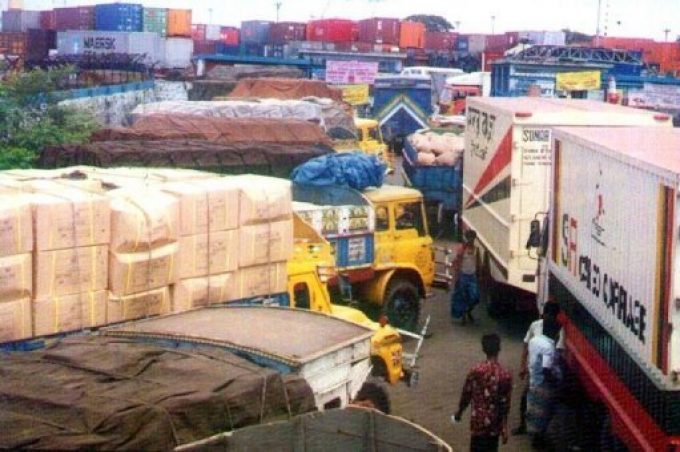
Bangladeshi vehicle owners began a countrywide strike on Friday,
demanding the government scraps a decision to raise the price of diesel,
claiming it was too big a cost.
The strike has halted the transport of domestic
and international trade goods, with almost no trucks, covered vans,
lorries or prime-mover drivers working.
On Sunday, the government agreed to raise bus fares to encourage
public bus drivers back to work, but would not cut diesel prices for
truckers, and Rutom Ali, of the Bangladesh owner/drivers’ Association,
said: “Trucks won’t run until the diesel price is lowered back.”
Sources said Bangladesh’s home minister, Asaduzzaman Khan, will begin
discussions with the association this evening in a bid to convince
drivers to go back to work.
Amid the impasse, at least three vessels left Chittagong port jetties
without 1,500teu that had not arrived for shipping, according to Ruhul
Amin Sikder, secretary of the Bangladesh Inland Container Depots
Association. And he said more than 10,000 teu of export containers, due
to have been loaded onto vessels over the weekend, were now waiting
off-dock.
Mr Sikder says between 3,500 and 4,000 trucks enter the off-docks
with export goods daily, while some 2,000 trucks leave with imports,
but now “it is totally disrupted”.
Meanwhile, the Bangladesh Garment Manufacturers and Exporters
Association has called on the government to provide police escorts to
the port yards for boxes that need to be shipped urgently.
On Saturday and Sunday night, the police did escort some containers
to the port from warehouses close to Chittagong. But Rafayet Ullah, a
garment factory owner, said many shipments would miss their vessels and
exporters may have to use air freight instead.
“Containers which missed designated feeder vessels will also miss
mother vessels at transhipment ports, risking the need for air
shipments.”
Otherwise, he said, buyers may ask for a rate cut if goods reach
their destinations late – another challenge for exporters trying to
recover from the pandemic.